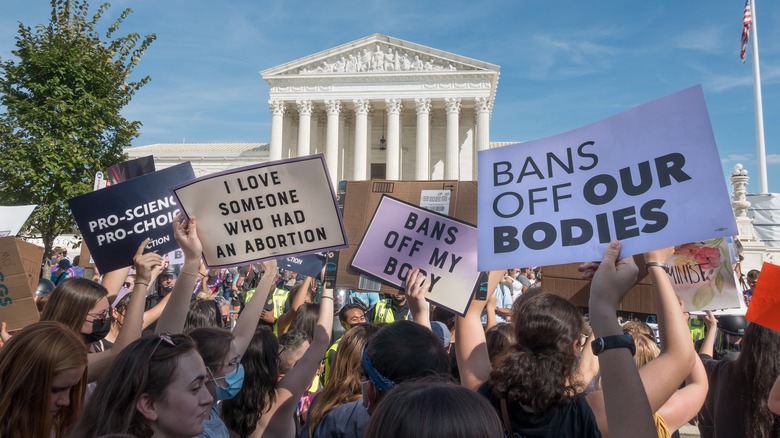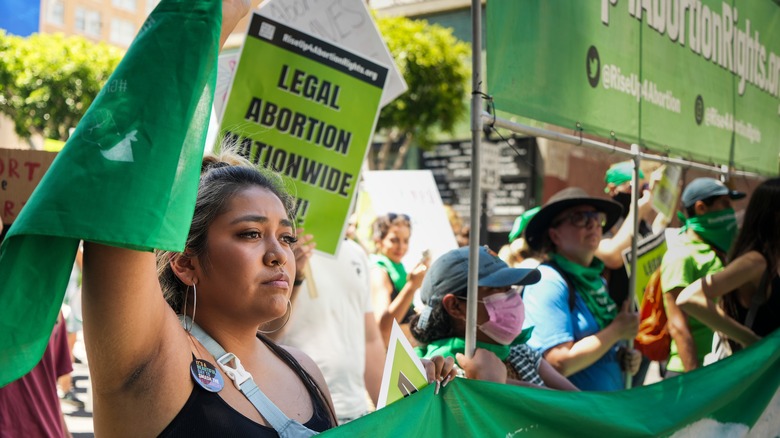State Abortion Bans Are Hurting One Demographic Of Women More Than Others
Roe v. Wade, the landmark Supreme Court ruling that protected abortion access across the United States, was overturned in June, via NPR. Court documents were leaked several weeks before the official ruling, though it was still a shock to women across the country when the news broke that abortion access was no longer protected nationwide.
Almost immediately, states began to ban the medical procedure. Herminia Palacio, MD, Guttmacher Institute President and CEO, explained what took place following the ruling to Teen Vogue.
"Without Roe, 26 states are certain or likely to ban abortion to the fullest extent possible, including 13 states that have 'trigger' laws in place that will automatically enact bans — some within days or even hours of today's decision," Palacio said on the day of the ruling. "Decades of research consistently show that abortion bans and restrictions don't reduce unintended pregnancy or demand for abortion, and they certainly do not help people improve their health. Rather, they impose significant hurdles to obtaining care, causing stress for people in need of abortion and leading some to experience forced pregnancy and all its troubling consequences."
Several months after the ruling, we have learned that the consequences are especially impacting a certain demographic.
A certain demographic is deeply impacted by abortion bans
When Roe v. Wade was initially overturned, many experts were concerned that the bans would impact women of color more than any other demographic, via Reuters. Black women make up 38% of Mississippi's population, a state with trigger laws that went into effect after the Supreme Court ruling. With a higher population of women of color in southern states with more restrictive laws, it was clear who was going to have to deal with the impact the most.
However, a new study has found that abortion bands have impacted Latinas across the country more than any other demographic, per the National Partnership for Women & Families. The study found that 6.5 million Latinas (42% of all Latinas ages 15-49) live in the 26 states that have banned or are in the process of banning access to abortion.
"This community is really facing the brunt of the overturn of Roe v. Wade," the study's co-author Candace Gibson shared with NBC News. A high number of Latinas that call states like Texas, Florida, and Arizona home are dealing with the most intense abortion bans.
Co-author Shaina Goodman told NBC News, "The breakdown of the data is really about telling a story about who is harmed. It's moms, it's moms with young kids, it's people who are struggling to make ends meet."

